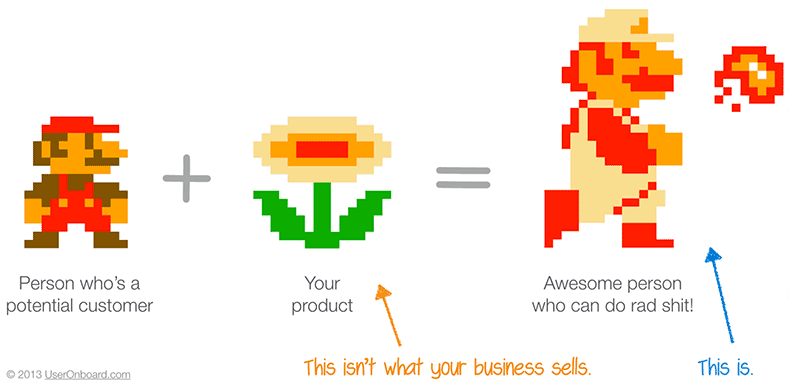
Customers don’t know what they want
This myth probably comes from the most misunderstood concept in business and is perfectly illustrated by this well-known quote from Henry Ford. Yes, you know, this one:
“If I had asked people what they wanted, they would have said faster horses.”
It’s not uncommon to see people using this kind of argument from authority when it comes to beliefs and myths. All tho, it might have been wrongly interpreted or worse, it would have never existed.
Fortunately for us, Henry Ford was not the only one to speak about what people want, need and do. Back in the 60s’ Theodore Levitt, when explaining the importance of focusing on a wider view of business, might have said:
“People don’t want to buy a quarter-inch drill, they want a quarter-inch hole.”
Which means that a product is not an end but rather it is a mean toward a higher goal.
Surely, this is another argument from authority and could be misinterpreted (or simply could be an appropriation), but it is worth noting that recent business frameworks successfully embedded this concept.
Clayton Christensen, Tony Ulwick, and others wrote extensively about this concept as “Jobs To Be Done” (or JTBD), an approach that describes people as “agents seeking to ‘hire’ the best product or service to achieve a job (or higher goal)”. Even tho all these authors may have a slightly different definition of JTBD, they all agree on the necessity of understanding first their customer and their environment in order to deliver a good or innovative solution.

Frameworks like the Business Model Canvas and Value Proposition Canvas show the importance of performing initial research before working on a solution. Interestingly, these exhibit something well known to UX and Design Thinking practitioners: user/customer research. They are showing the importance of not only talking to your users/customers but properly framing your questions so that you can learn something actionable.
Saying that “people don’t know what they want” may demonstrate that you are not using the right approach, therefore not asking the right questions.
Thanks for reading!
Like what you just read?
Give some claps 👏👏👏👏👏👏 and hit the follow button!













Discussion